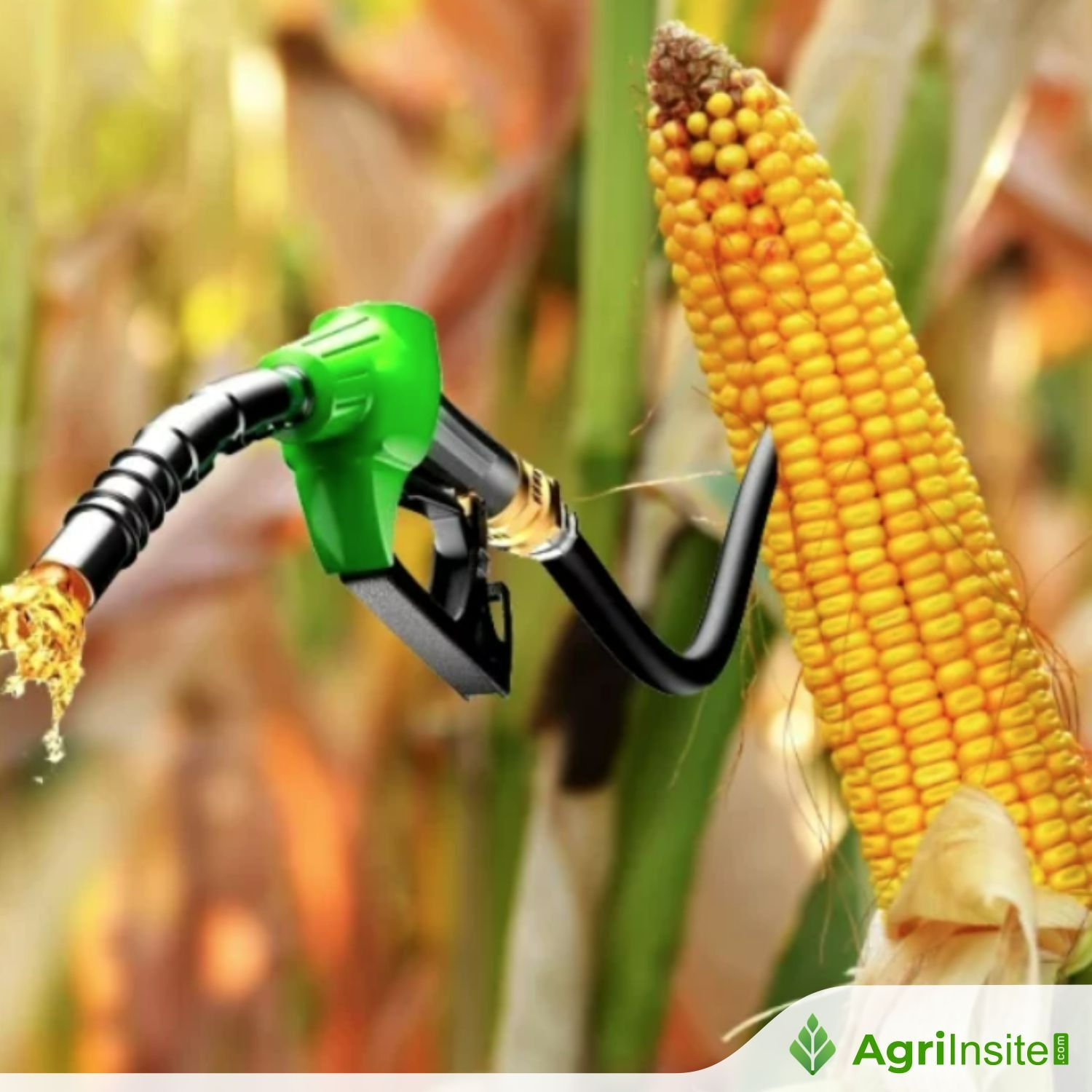Grain Ethanol Could Save India Rs 1.28 Lakh Cr By 2030: Report

India’s grain-based ethanol industry could save over ₹1.28 lakh crore in foreign exchange between 2025 and 2030, according to a GEMA report. Ethanol blending is expected to hit 20% by 2025, boosting energy security and cutting carbon emissions. However, rising maize costs, supply competition, and pricing concerns pose challenges. Government support and policy reforms remain crucial.
A ‘Thought Leadership Report’ released by the Grain Ethanol Manufacturers Association (GEMA) forecasts that grain-based ethanol could save India an estimated Rs 1.28 Lakh Crore or more in foreign exchange between 2025 and 2030. The report outlines the pivotal role of the government’s ethanol blending program, which is poised to reach 20 per cent blending by 2025, ahead of the previously set target of 2030. This ambitious initiative, driven by the government’s focus on reducing dependency on fossil fuels, could play a crucial role in reducing India’s trade deficit, mitigating the volatility of global oil prices, and enhancing energy security.
Vaibhav Dange, a public policy expert on green energy, said, “The EBP programme has made India a global leader in the Biofuels sector and green energy. It has increased India’s soft power on the global stage and has benefited the domestic agrarian economy immensely. The government needs to continue the good work it has been doing over the last few years to ensure the sector flourishes,” as per the report.
India, the world’s third-largest energy consumer, imports approximately 85 per cent of its crude oil, making the country highly vulnerable to price fluctuations and geopolitical risks in the global oil market. By replacing a significant portion of petrol with ethanol, India could reduce its reliance on imported crude oil, thus saving substantial foreign exchange and achieving energy independence. The report notes that grain ethanol, primarily produced from maize, is expected to contribute heavily to these savings, with estimates suggesting that it could account for 57 per cent of the total savings, amounting to Rs 1.28 Lakh Crore.
Ethanol blending not only offers savings in foreign exchange but also helps reduce carbon emissions, which is critical as India strives to meet its climate goals. The Thought Leadership Report emphasises that ethanol blending will be a key contributor to these goals, with the substitution of crude oil for ethanol leading to a reduction of 557 lakh metric tonne of CO2 emissions.
Challenges And Opportunities
Despite its potential, the report also highlights several challenges that must be overcome to fully realize the benefits of ethanol blending. The rising cost of maize, which is the primary feedstock for ethanol production, poses a risk to the financial viability of the industry. Although the price of maize has been increasing, the procurement price for ethanol has remained stagnant, creating a mismatch between input costs and profitability for ethanol producers. This issue needs urgent attention from the government to ensure fair procurement pricing that supports sustainable growth in the ethanol industry.
The growing demand for maize could also create competition with other industries such as poultry and animal feed. As the ethanol industry expands, this could result in supply bottlenecks unless additional incentives are provided to farmers to shift towards maize cultivation. The report calls for a more diversified approach to feedstock, including the use of surplus rice stored in Food Corporation of India (FCI) warehouses. The use of surplus rice would not only help reduce waste but also support the government’s waste-to-wealth mission, benefiting both the ethanol industry and food security measures.
The report also underscores the importance of the by-product of ethanol production, Distiller’s Dried Grains with Solubles (DDGS), which is used in animal feed. By encouraging the domestic consumption of DDGS, India can further reduce reliance on imported animal feed, strengthening its agricultural economy. The government is urged to incentivize industries that use DDGS, such as animal feed manufacturers, through subsidies or tax benefits to ensure that this valuable resource is utilised effectively.
Government Support And Future Outlook
With the ethanol industry poised for rapid growth, the Indian government’s policies will be crucial in overcoming these challenges and maximizing the potential of grain-based ethanol. The government’s recent initiatives, including reducing the reserve price of surplus rice and introducing incentives for the establishment of ethanol distilleries, are steps in the right direction. Furthermore, partnerships with countries like Brazil—a global leader in ethanol production—will provide India with valuable insights and expertise in scaling up its biofuels industry.
Abhinav Singhal, Treasurer, the Grain Ethanol Manufacturers’ Association (GEMA), believed, “In the last two years, the Grain Ethanol Industry has grown and become the largest contributor to the EBP of India. Still, India being a grain surplus country – the Grain Ethanol Industry requires timely support from the Government of India with the right policy initiatives and direction to grow and thrive in the future.”
“India’s ethanol success is a result of bold policy decisions and collaborative industry efforts. The grain-based ethanol industry, in particular, holds immense potential to drive rural economic development, enhance farmer incomes, and ensure year-round ethanol production. It must be actively promoted through supportive policies, assured feedstock supply, and fair pricing mechanisms. IFGE remains committed to enabling a robust and future-ready ethanol ecosystem that supports India’s clean energy transition and national energy security.” said Sanjay Ganjoo, Director General, the Indian Federation of Green Energy.
India’s grain-based ethanol program is rapidly gaining momentum, and the savings it could generate are substantial. With Rs 1.28 Lakh Crore or more in foreign exchange savings by 2030, ethanol blending stands to make a significant contribution to the country’s energy security and economic stability. However, the success of this program will depend on addressing the challenges of feedstock supply, pricing mechanisms, and the creation of a robust domestic market for ethanol by-products.
To Read more about Ethanol Industry & Bio Energy News, continue reading Agriinsite.com














